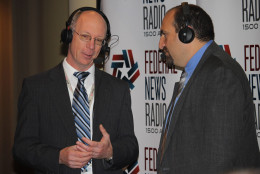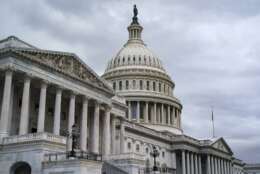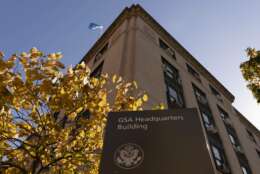Acquisition
-
Mark Borkowski, the assistant commissioner in the Office of Acquisition and the chief acquisition officer at CBP in the Homeland Security Department said he is developing a new policy to improve how the agency manages supply chain risks.
January 14, 2022 -
Jason Miller, executive editor of the Federal News Network, provides a wrap up of the key procurement developments in 2021 and takes a sneak peak at what's ahead in 2022.
January 14, 2022 -
Steve Schooner, Nash & Cibinic professor of procurement law at The George Washington University Law School, joined host Roger Waldron on this week's Off the Shelf for a wide ranging discussion on climate change and key strategies for sustainable procurement.
January 14, 2022 -
Lawmakers see an opening this year to reform the Federal Information Security Modernization Act, with major updates including the assignment of clear roles and responsibilities for federal cybersecurity leadership. The House Oversight and Reform Committee…
January 11, 2022 -
Paul Courtney, who became the new chief procurement officer for DHS in August, said recruiting and retaining his workforce is among his highest priorities.
January 06, 2022 -
In a 2-1 decision, the Sixth Circuit Court of Appeals worried there'd be no limit to a president's authority over contractor employees if the government were allowed to impose a vaccine mandate.
January 06, 2022 -
U.S. Customs and Border Protection changed a solicitation after receiving bids. And it gave bidders very little time to make revisions.
January 05, 2022 -
For a federal contractor, the best motivation for a new year's resolution is a better shot at more work.
January 04, 2022 -
Lee Frederiksen of Hinge Marketing joins host Mark Amtower on this week's Amtower Off Center to discuss marketing tactics that government contractors should use in Fiscal Year 2022.
January 03, 2022 -
Nearly 80% of the trillion dollar infrastructure bill is slated for grants. Only a sliver is destined for federal contracts.
January 03, 2022 -
The top 10 Reporter’s Notebook stories in 2021 demonstrated the popularity of topics ranging from IT modernization to cybersecurity to large contract vehicles.
January 03, 2022 -
For federal contractors, 2021 comes to an end with no appropriations for 2022 until halfway through the fiscal year.
December 28, 2021 -
This is the second year that Congress is requesting information on the augmented reality goggles.
December 20, 2021 -
Larry Allen, president of Allen Federal Business Partners, offers an inside look at some of the most unusual questions he’s received this year.
December 20, 2021 -
The White House plans a series of reforms to increase contracting with small and disadvantaged businesses, including raising governmentwide goals and changing category management.
December 16, 2021














